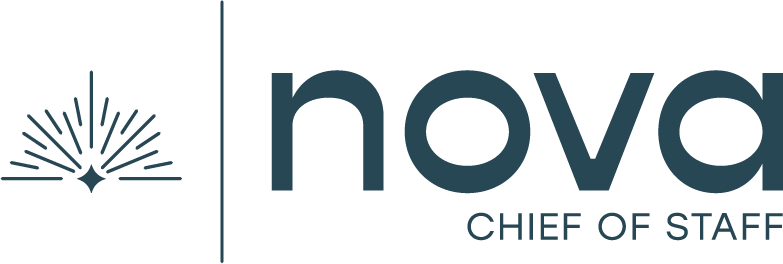Chiefs of Staff: Increase Your Impact Through Discernment
In the dynamic role of a Chief of Staff (CoS), the desire to take on ownership and solve problems is natural. However, a counterintuitive truth often emerges: the less you own, the greater the IMPACT you will have. Let's explore why stepping back can actually propel your effectiveness to new heights.
The Paradox of Ownership
As a Chief of Staff, we are driven by the need to solve problems and be seen as invaluable. We crave ownership because it feels like a direct path to making a difference. But from a 10,000-foot view, owning too many end-to-end projects and deliverables can limit your ability to:
Identify and solve widespread problems
Improve processes and efficiency across the organization
Have a meaningful breadth of impact
Your capacity to see the bigger picture diminishes when you become too entrenched in the minutiae. The real magic happens when you discern what to own and what to delegate.
A Practical Example
Consider the scenario of tackling a financial scorecard issue. Diving in and owning the process from start to finish is tempting. But here's a more impactful approach:
Identify the team and the long-term doer: Find the right people to be responsible for managing the scorecard on an ongoing basis.
Collaborate to create and launch: Work alongside them to develop the solution and ensure a successful launch.
Empower and elevate: Make the team look great in the organization's eyes by highlighting their efforts and successes.
Clarify executive needs: Clearly communicate what your executives need from this solution.
Support and check-in: Be available to provide guidance and support without taking over.
By not owning the process end-to-end, you free up your bandwidth to make a similar impact across multiple other objectives. This broader influence would be impossible with an ownership-centric mindset.
The Power of Discernment
The ability to discern where to invest your time and energy is crucial. CEOs should also note that it's not about their CoS owning nothing but rather about their strategic ownership. By leaving the capacity for the CoS to identify, solve, and drive problems and solutions, you enable them to enhance organizational efficiency and effectiveness on a larger scale.
Conclusion
In conclusion, as a Chief of Staff, the less you own, the more significant your impact will be. This approach requires a shift in mindset from ownership to influence, from control to collaboration. By focusing on discernment and strategic delegation, you not only amplify your own impact but also empower those around you to excel. Remember, the key to success is not how much you do but how wisely you choose to do it. Embrace the paradox. Step back to step up. And watch as your influence and effectiveness soar.
If you’re looking for templates and worksheets to help you in your Chief of Staff role, or to level up your facilitative leadership skills, visit our Nova Shop.

